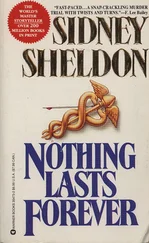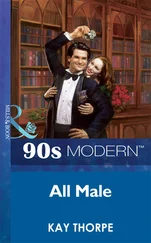He needed a chair on casters, an electric typewriter, and a fireax. The floor was quiet. His bleeding had stopped, but the pain was intensifying. He remolded his ball of plastic explosive until it was the shape of a football, with the detonator in the middle. He put it on the seat on the chair. Carefully he put the electric typewriter on top of the explosive, tied the typewriter to the chair with its cord, then pushed the chair toward the elevator banks.
Now he heard popping of gunfire out on the street. The position of the elevator banks on the lobby floor and the locations of the garage entrances below that, limited the terrorists' field of fire in all directions on the street level, but from above, three or four stories up, they could keep the police from ever getting near the building.
The gang would be ready for armored cars. There were iron gates across the garage entrances, and an armored car with wounded men in it stalled at the bottom of the ramp would be impassable. This wasn't wartime, when the order would be given to blow it away. Policemen did not kill brother officers in the line of duty. It was more than society had a right to ask.
He could hear gunfire coming up the elevator shaft. What he was waiting for was the sound of a car in motion. He would not have a lot of time, and there was nothing he could do in advance, for it involved using the fireax on the door. As soon as it was heard and understood on the thirty-second floor, they would be after him. He heard automatic rifle fire from outside.
He got out the radio. "How are you guys doing?"
"Well, I guess you were telling us the truth. Some people thought you were a psycho. They're kicking the shit out of us. You say there were twelve?"
"Now seven."
"Well, you're one tough fucking dude, let me tell you."
"Stay tuned." Leland said, and put the radio away. One of the elevators was in motion. He wheeled the chair into position, then turned to the elevator door with the ax. With the first swing, the pain in his left foot was so severe that he nearly dropped the ax on it. The next swing got the blade of the ax into the crack of the door and broke something inside, because the door opened, then was forced shut again. He rotated the handle of the ax so that the door came open again, enough for him to get his hand in and pull it open wide, and block it open with the length of the ax handle.
He looked in — and bullets hit the top of the door. The car, coming up, was still a long way down. Leland had to return the fire — he had to show he was still fit. He poked the Kalashnikov into the shaft and fired a burst down toward the car on the thirty-second floor from which the firing had come. Far below, someone in the ascending car fired at him, the round pinging upward toward the roof. Leland got behind the chair and rolled it like a baby carriage into the shaft. If the guy saw the thing coming down, he might think it was Leland. Even if it didn't go off, his chair-bomb would go through the roof of the car.
Suddenly the shaft filled with brilliant light, and in the fraction of a second before he heard the sound, Leland knew he had accomplished far more than he had intended. The roar was the loudest sound he had ever heard in his life, and the concussion wave flung him through the air across the corridor and against the elevator door on the other side. He never lost consciousness, and he could feel the building continuing to shake as he slid to the bottom of the door. The floor was bouncing like a high school gymnasium during a dance. He could feel the building yawing. It wasn't his imagination — downstairs, people were screaming.
Then the motion was gone, but it had lasted long enough for him to understand what he had done. He had to get moving before he could start broadcasting again. The blast had knocked the wind out of him. Everyone else, too, he hoped.
He had to go up. The shooting had stopped. What the hell, he'd put the fear of God into everybody, including himself. Climbing stairs was laborious and very painful now; for a while he found it easier to go backwards, but he could feel his muscles knotting. That was exhaustion, too. He went on past the thirty-seventh floor. The only thing that could genuinely surprise them at this point was more effort than they thought he was capable of exerting. He could see that his mood had changed, that he had found another way of keeping himself pumped up. He didn't think anyone was in any immediate danger because of the damage he had done to the building. The weight of the people involved was nothing compared to the weight of the structure itself. He was having trouble remembering what he was doing and what he was doing it for. Killing the second girl had been easier than killing the first. Nagasaki and Hiroshima — nobody remembered Nagasaki. He'd had enough killing. He was sick of it.
He got out on the thirty-ninth floor, the computer installation. The floor was sealed off from even the daylight, great banks of electronic hardware bathed in their own dull gray emergency lighting. Curiously, none of the equipment had been damaged. Either the terrorists were as in awe of it as everybody else, or they planned to use it themselves in their journey into madness they thought was revolution.
Leland had seen the sheet on Anton Gruber a half dozen times. "Little Tony the Red" was supposed to lend him a certain glamor. He was thirty years old, the son of a Stuttgart industrialist, raised by nurses, sent to private schools. On his eighteenth birthday he was given a Mercedes; on his nineteenth, another. Through the late sixties, he ran with a bunch of indolent rich kids who open their summers at Saint-Tropez, winters at Gstaad. Some of those people had been on the arty fringe of the Baader-Meinhof gang, and gradually Anton Gruber was drawn in. He denounced his parents and accused his father of the "crimes" of hypocrisy, complacency, and arrogance.
There was more to it than that: Gruber pere had been an officer in the S.S. during the war, like so many presently successful German businessmen. Automobiles, electronics — the old Nazis were everywhere, silent about the past, smug about the present. A generation of the damned, whose children hated their parents' lies and self-justifications. It was not all that different in America. Steffie had suffered in her life most of all at the hands of her parents, when they had been insisting insanely that their marriage was still alive.
Rivers was probably Gruber's sixth or seventh victim. Dr. Hanns Martin Schleyer, an industrialist like Gruber's father, had been executed the same way, a bullet through the lapel. Leland had heard that the West German police had tapes of Gruber gloating that he made sure his victims were dressed properly when he pinned the black boutonniere. Anton Gruber was fascinated by death, the presence and the look of it.
He was not the only one among them like that, either. Some of it was poetic German horseshit, but Ursula Schmidt, in an essay expressing her "final commitment to violence," wrote of her "womb of death to which men return for eternal rest."
Leland might have just killed her.
He didn't know who he had killed anymore: a generation ago, their fathers, uncles, possibly their mothers. In this building was a man who had just lost his brother because of Leland, unless Leland had just killed him, too.
The offices up here had clear glass half-walls facing the equipment itself, part of the paranoia that surrounded computers. The highest priests had to keep the totems in sight. He could not help grinning at the reaction tomorrow of the computer's attendants to the filth he was dragging in here. He wanted to take a position near the windows on Wilshire, although it would give him no protection. Perhaps that would work for him: given his past performance, they might not think he would be so stupid. He shook his head — that kind of thinking would get him killed.
Читать дальше











